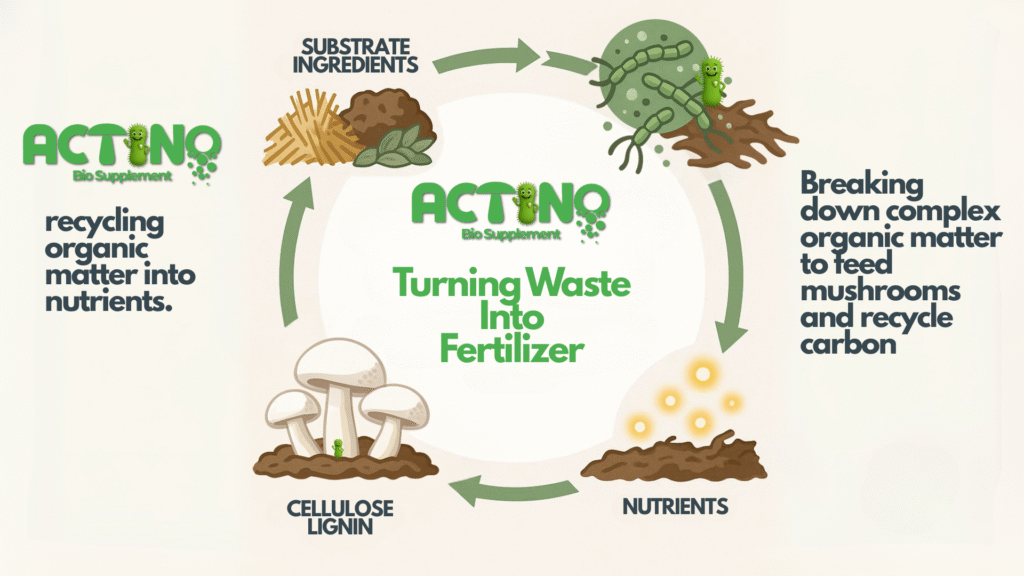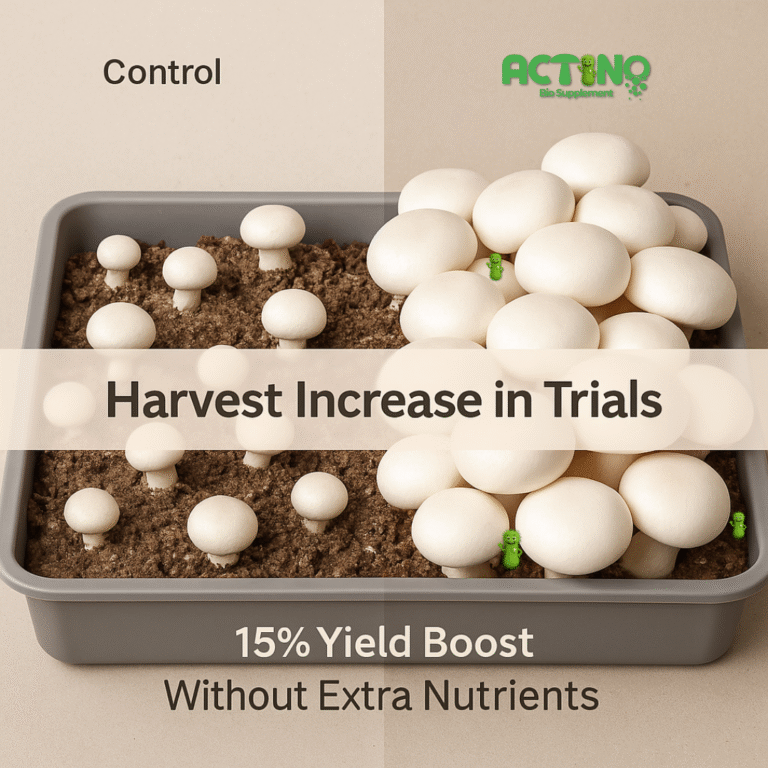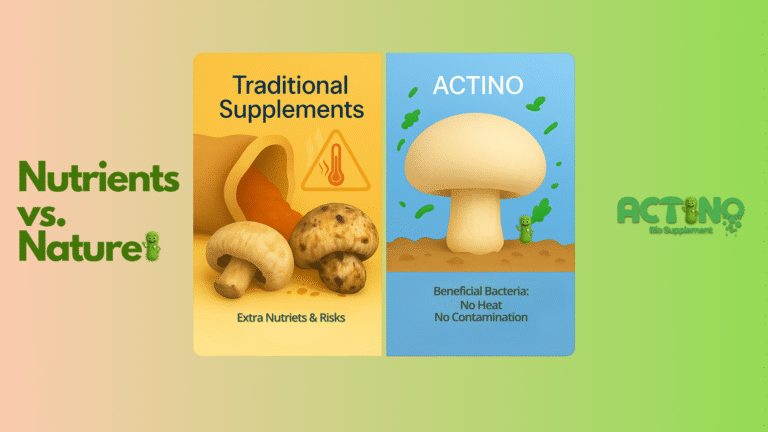Actinobacteria: Nature’s Decomposers

Take a walk in a dense forest and scoop up a handful of rich, dark soil. What you’re holding is the end product of countless microbes digesting fallen organic matter. Among those microbes, actinobacteria are some of the most important players, particularly when it comes to tackling the hardest-to-digest inputs like wood and fibrous plants. They are key agents of the carbon cycle, turning dead biomass back into basic building blocks.
Breaking Down the “Unbreakable”: Plant material contains cellulose and lignin – tough polymers that give plants their structure. Many organisms can’t break these down. Actinobacteria, however, produce specialized enzymes to decompose these substances. In a mushroom substrate, actinobacteria set to work on straw, wood chips, and other compost ingredients, breaking them down into simpler compounds that mushrooms can use for food. The ACTINO business plan highlights this, noting that actinobacteria’s lignocellulose-degrading ability is an indicator of compost maturity. In practice, this means that substrates with actinobacteria are continuously being “freshened up” – complex wastes are turned into readily available nutrients. Mushrooms feed on these, leading to sustained growth across multiple flushes.
Nothing Goes to Waste: By the end of a mushroom cycle, much of the substrate can be spent and full of leftover bits the mushrooms didn’t eat. With actinobacteria present, more of that material gets utilized. Growers might find that the spent substrate (after all harvests) is more finely broken down than usual – that’s actinobacteria at work. This spent substrate can then be used as a high-quality organic fertilizer elsewhere, because the actinobacteria have already pre-composted it. In essence, ACTINO not only boosts your mushroom yield, but it helps ensure the afterlife of your substrate is also valuable (a win for circular agriculture).
Contribution to Climate and Soil: Every time actinobacteria break down organic matter, they release carbon dioxide as part of the carbon cycle and incorporate some carbon into the soil as stable organic matter (humus). This is how soils build fertility over time. In using actinobacteria, ACTINO aligns mushroom farming with this natural process. We’re not hauling away un-decomposed waste or burning it (which would release carbon quickly); instead, through actinobacteria, we’re letting nature do slow carbon recycling within the soil. This is far more climate-friendly and helps maintain soil health for the long term.
Parallel in Composting: Mushroom farmers often prepare compost before spawning. Actinobacteria are crucial in that phase too – their presence in compost piles is a sign that composting is going well (they often turn compost dark and give that earthy smell). By continuing to support actinobacteria during the cropping phase with ACTINO, farmers essentially extend the composting into the cropping. The difference is during cropping, the mushrooms and actinobacteria are working in tandem: one breaking stuff down, the other building itself up. It’s a beautiful symbiosis.
In summary, actinobacteria are Mother Nature’s decomposers, and ACTINO brings them to the service of agriculture. They ensure that in a mushroom farm, very little goes to waste – today’s mushroom food, tomorrow’s plant food, all facilitated by these microbes. By embracing actinobacteria, ACTINO enables a farm to operate more like a natural ecosystem, where outputs feed back into inputs, and everything is reused. This is a cornerstone of sustainable farming, and it happens to boost mushroom growth too – a true win-win.
#Decomposition #CarbonCycle #SoilEcology #NutrientRecycling #SustainableAg #تجزیهکنندهها #سلامت_خاک #چرخه_موادغذایی #اکتینوباکتریا #مواد_آلی


